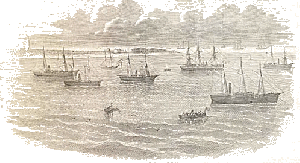-
an official ban on trade or other commercial activity with a particular country."an embargo on grain sales"
-
impose an official ban on (trade or a country or commodity)."the country has been virtually embargoed by most of the noncommunist world"
-
seize (a ship or goods) for state service.
 The video in the last post [background music…] is of a talk Dr. Healy gave exactly a year ago when we first submitted our RIAT article about Paxil Study 329 to the British Medical Journal [BMJ]. If you watched it, you know that it’s a historical review of the Clinical Trial and the article that appeared in the Journal of the American Academy of Child and Adolescent Psychiatry [JAACAP] in 2001. Notice that he doesn’t talk directly about what we said in our article which is a second look at the data from that study. That’s because like most academic journals, the BMJ requests an embargo on discussing an article submitted for publication until it is either rejected or actually published. I hasten to add that this kind of embargo makes perfect sense to me for any number of reasons. So I’m not complaining.
The video in the last post [background music…] is of a talk Dr. Healy gave exactly a year ago when we first submitted our RIAT article about Paxil Study 329 to the British Medical Journal [BMJ]. If you watched it, you know that it’s a historical review of the Clinical Trial and the article that appeared in the Journal of the American Academy of Child and Adolescent Psychiatry [JAACAP] in 2001. Notice that he doesn’t talk directly about what we said in our article which is a second look at the data from that study. That’s because like most academic journals, the BMJ requests an embargo on discussing an article submitted for publication until it is either rejected or actually published. I hasten to add that this kind of embargo makes perfect sense to me for any number of reasons. So I’m not complaining. But even though I understand and even approve of the embargo, that doesn’t mean that I enjoy waiting for publication to talk about our paper. I’ve been thinking about that Keller et al article for five years now, and actively working on our RIAT paper for two years. So it’s hard to think about much else these last several weeks [as in my recent posts are monotonous, mostly about RCTs]. But I’ll have to admit that the wait has had something of a positive effect in that it has focused my thinking onto an important topic. You guessed it – the topic is embargos – and specifically on the pharmaceutical industry’s embargo on the primary data from their Clinical Trials.
But even though I understand and even approve of the embargo, that doesn’t mean that I enjoy waiting for publication to talk about our paper. I’ve been thinking about that Keller et al article for five years now, and actively working on our RIAT paper for two years. So it’s hard to think about much else these last several weeks [as in my recent posts are monotonous, mostly about RCTs]. But I’ll have to admit that the wait has had something of a positive effect in that it has focused my thinking onto an important topic. You guessed it – the topic is embargos – and specifically on the pharmaceutical industry’s embargo on the primary data from their Clinical Trials.
-
an act or means of sealing off a place to prevent goods or people from entering or leaving."there was a blockade of humanitarian aid"
-
seal off (a place) to prevent goods or people from entering or leaving."Blackbeard blockaded the Charleston Harbor"

 And so our article is about more than bringing the data from one Clinical Trial out into the daylight. It’s an example of what can be learned in general from the examination of the raw data when conducted by people who don’t work for the company [that’s us] – who don’t have the kinds of conflicts of interest that are ubiquitous in these Industry funded RCTs [that’s us too]. The goal is, of course, to add our voices to the growing cry to make the actual raw data available for every Clinical Trial…
And so our article is about more than bringing the data from one Clinical Trial out into the daylight. It’s an example of what can be learned in general from the examination of the raw data when conducted by people who don’t work for the company [that’s us] – who don’t have the kinds of conflicts of interest that are ubiquitous in these Industry funded RCTs [that’s us too]. The goal is, of course, to add our voices to the growing cry to make the actual raw data available for every Clinical Trial…
“..an example of what can be learned in general from the examination of the raw data by *people* who don’t work for the *company*” ??
Thank goodness study329.org will provide free *public* access to this amazing feat. Will be great to have so many fresh eyes from outside of medicine and the Pharma empire looking at this.
Having the actual raw data for every clinical trial available to the public would probably be devastating to psychiatric drug companies. No wonder they resist it to protect profits… if as expected it came out that most medications have very limited if any beneficial effects for mental problems in the long term, and many harmful effects in the short and long term, think of the job losses and market value losses…. This situation remind me of the movie the Insider with Russell Crowe, when the tobacco companies wanted to hide the true data showing how much harm was being caused by their product.